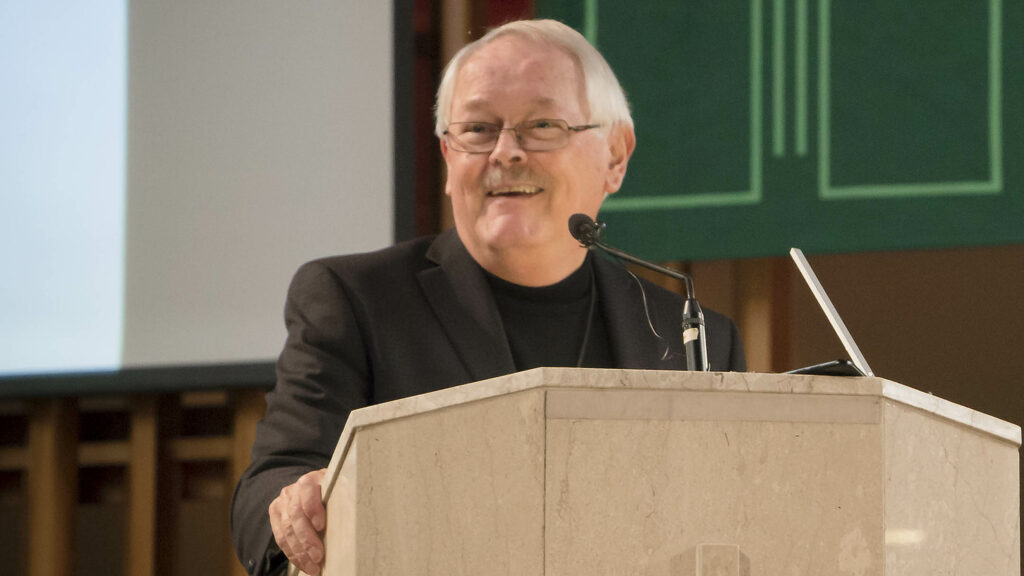It’s no secret that today we’re witnessing a massive decline in church attendance and, seemingly, a parallel loss of interest in religion. The former mindset, within which we worried, sometimes obsessively, about sin, church-going, and heaven and hell no longer holds sway for millions of people.
As one parent, worried about the religious state of his children, shared with me recently, “our old religious concerns never ever darken their minds.” What’s to be said in the face of this?
Admittedly, I may not be the person best-suited to offer that advice. I’m over 70 years old, a spiritual writer whose main focus of research and teaching right now is on the spirituality of aging, and I’m a Roman Catholic priest, a religious insider, who can be perceived as simply a salesman for religion and the churches.
But, despite that, here are some counsels on faith and religion for today’s generation.
First: Search honestly.
God’s first concern is not whether you’re going to church or not, but whether you are staying honest in your search for truth and meaning. When the Apostle Thomas, doubts the reality of the resurrection, Jesus doesn’t scold him, but simply asks him to stretch out his hand and continuing searching, trusting that if he searches honestly he will eventually find the truth.
The same is true for us. All we have to do is be honest, to not lie, to acknowledge truth as it meets us.
In John’s Gospel, Jesus sets out only one condition to come to God: Be honest and never refuse to acknowledge what’s true, no matter how inconvenient. But the key is to be honest!
If we’re honest we will eventually find meaning and that will lead us where we need to go – perhaps even to a church door somewhere. But even if it doesn’t, God will find us. The mystery of Christ is bigger than we imagine.
Second: Listen to what’s deepest inside you.
Soul is a precious commodity. Make sure you honor yours. Honor the voice inside your soul.
Deeper than the many enticing voices you hear in world inviting you in every direction is a voice inside you which, like an insatiable thirst, reminds you always of the truth of this prayer from Saint Augustine: You have made us for yourself, Lord, and our hearts are restless until they rest in you.
Stay in touch with that voice. You will hear it in your restlessness and it will, in the words of Karl Rahner, teach you something that’s initially is hard to bear but eventually sets you free: In the torment of the insufficiency of everything attainable, we eventually learn that here in this life there is no finished symphony.
Third: Beware the crowd!
In the Gospels the word “crowd” is almost always pejorative.
For good reason: Crowds don’t have a mind and the energy of a crowd is often dangerous. So beware of what Milan Kundera calls “the great march”, namely, the propensity to be led by ideology, group-think, the latest trend, the popular person or thing, the false feeling of being right because the majority of people feel that way, and the social pressures coming from both the right and the left.
Be true to yourself. Be the lonely prophet who’s not afraid to be alone on the outside. Dream. Be idealistic. Protect your soul. Don’t give it away cheaply.
Fourth: Don’t confuse faith with the churches – but don’t write off the churches too quickly.
When they ask those without religious affiliation today why they aren’t religious invariably their answer is: “I just don’t believe it anymore.” But what’s the “it” which they no longer believe? What they don’t believe anymore isn’t in fact the truth about God, faith, and religion, but rather what they’ve heard about God, faith, and religion. Sort that out and you will find that you do have faith.
Moreover, don’t write off the churches too quickly. They have real faults; you’re not wrong about that, but they’re still the best GPS available to help you find your way to meaning. They’re a roadmap drawn up by millions of explorers who have walked the road before you.
You can ignore them, but then be alert to God’s gentle voice often saying: “Recalculating”. God will get you home, but the churches can help.
Fifth: Don’t forget about the poor.
When you touch the poor, you’re touching God and, as Jesus says, at the judgment day we will be judged by how we served the poor.
Give yourself away in some form of altruism, knowing, as Jesus puts it, that it’s not those who say Lord, Lord, who go to heaven but those who serve others. In your search, you need to get a letter of reference from the poor.
Sixth: Look among your contemporaries for a patron to inspire you.
Jean Vanier, Henri Nouwen, Thomas Merton, Dorothy Day, Oscar Romero, Dietrich Bonhoeffer, Simone Weil, Etty Hillesum, and Dag Hammarskjold, among others – they’ve all navigated your issues.

